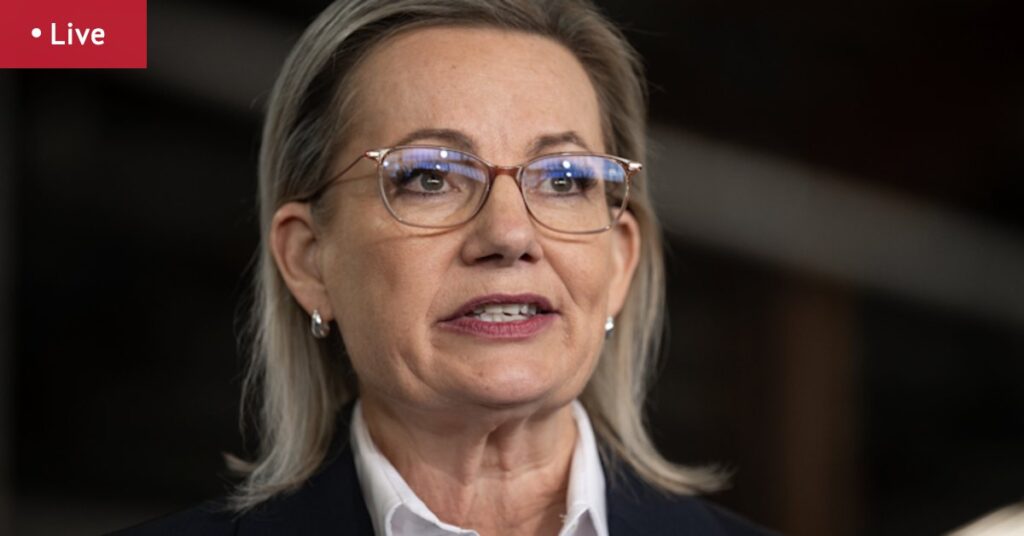
The United Nations Security Council has approved US President Donald Trump’s “peace plan” for Gaza, paving the way for an international security force to enter the beleaguered Palestinian territory. This decision also supports the formation of a governing Board of Peace. The resolution was backed by thirteen countries on the Security Council, while Russia and China abstained from the vote, opting not to use their veto power despite Russia circulating an alternative proposal.
This resolution endorses Trump’s 20-point peace plan unveiled in September, which led to a ceasefire between Israel and Hamas in October. The ceasefire followed two years of conflict initiated by Hamas’s attack on Israel on October 7, 2023. US Ambassador to the United Nations, Michael Waltz, expressed gratitude to the council for supporting a “historic and constructive resolution,” describing Trump’s plan as a “bold pragmatic blueprint” for the Middle East.
Australia’s Ambition for COP31
Meanwhile, Australia’s Climate and Energy Minister Chris Bowen has reiterated the country’s determination to host the United Nations global climate talks, COP31, in Adelaide next year. Speaking at the COP climate talks in Belem, Brazil, Bowen emphasized Australia’s commitment: “We are in it and we are in it to win it,” he declared at a side event hosted by Australia’s Clean Energy Investor Group.
Bowen’s statement underscores Australia’s strategic interest in leading the global climate discussions, highlighting the nation’s potential role as a pivotal player in international climate policy. “It’s the fight we’re going to have because it is very much in Australia’s interests and I believe in the world’s interest, having Australia as the president of COP31,” Bowen added.
Political Shifts in Australia
In domestic politics, Jess Wilson has been elected as the leader of the Liberal Party of Victoria, marking the third leadership change for the state’s opposition in just 11 months. Wilson’s victory over Brad Battin, a former police officer, reflects ongoing challenges within the party to connect with voters on issues like crime and public safety.
North of the Murray River, a similar political reshuffle is anticipated within the New South Wales Liberals, with a leadership challenge expected to see Vaucluse MP Kellie Sloane emerge as the new opposition leader. Earlier today, Coffs Harbour MP Gurmesh Singh was elected the leader of the Nationals in NSW, indicating further shifts in the political landscape.
US-Saudi Relations and Military Sales
On the international front, President Donald Trump has confirmed plans to sell F-35 fighter jets to Saudi Arabia, a decision that aligns with the US’s strategic partnerships in the region. “They want to buy them, they’ve been a great ally. We’ll be selling F-35s, yeah,” Trump stated, ahead of Saudi Arabia’s Crown Prince Mohammed bin Salman’s visit to Washington.
The sale of these advanced jets, typically reserved for core allies such as NATO members, Australia, Japan, and Israel, marks a significant development in US-Saudi relations. Israel has reportedly not objected to the sale, provided Saudi Arabia normalizes relations with Israel through the Abraham Accords, a condition Trump is expected to discuss with the Crown Prince.
Australia’s Foreign Policy Moves
In a related development, Foreign Minister Penny Wong has declared the Australian government’s intent to reinforce its position as the Pacific’s top security partner. This includes new security agreements with Tonga, Fiji, and Vanuatu. Wong emphasized the need for an “active and ambitious” foreign policy amid growing geopolitical competition between the US and China.
“Australia cannot afford to stand still while tectonic plates are shifting around us because, in these circumstances, that would mean going backwards,” Wong stated at the Australian Institute of International Affairs’ national conference. “We will continue to work with purpose and energy to protect and promote Australia’s interests.”
As these developments unfold, the political and diplomatic landscapes continue to evolve, with significant implications for regional and global dynamics. Observers will be keenly watching how these initiatives impact Australia’s role on the international stage and its domestic political stability.






